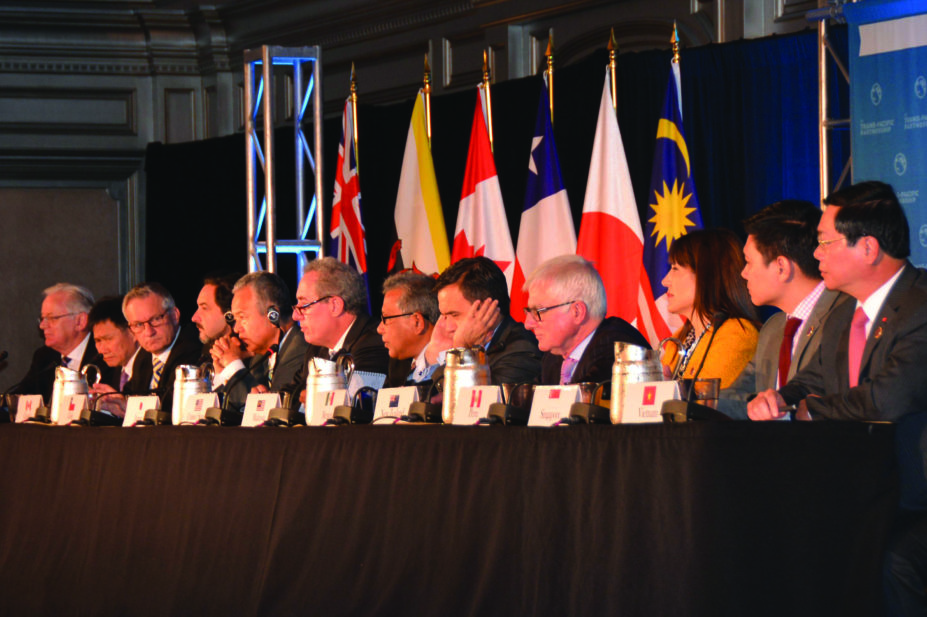
Alamy
Countries involved in the controversial Trans-Pacific Partnership (TPP) trade agreement concluded their negotiations on 5 October 2015, spelling out the data protection terms for biologic medicines.
The TPP, which involves the United States, Japan, and ten other Pacific Rim nations, will impact some 800 million people living in the area and affect nearly 40% of global trade. The trade agreement aims to strengthen economic ties between these nations, cut tariffs and foster trade to boost growth.
The written agreement has yet to be published but at a press briefing, held in Atlanta on 5 October 2015 to announce the conclusion of the negotiations, details emerged about how nations would protect data around biologic medicines.
Judit Rius Sanjuan, US manager and legal policy adviser for the Doctors Without Borders (MSF) Access Campaign, who has been closely following the negotiations, says countries were given two options on how they protect these data.
In the first option, she says, countries could give eight years of marketing exclusivity for biologics, which would mean generic companies can use the innovator’s data to develop their biosimilar, but would not be allowed to enter the market during this time.
In the second option, countries could introduce a minimum of five years of data exclusivity, plus a commitment to bring in administrative measures that could further delay biosimilars, which would range from five to eight years, according to Sanjuan. Under the data exclusivity system, data are not shareable.
Michael Froman, US Trade Representative, told the news conference that a strong and balanced outcome was secured that “both incentivises the development of these new lifesaving drugs, while ensuring access to these pioneering medicines and their availability”.
“This is the first agreement in history to ensure a minimum period of protection for biologics” to encourage both innovation and access, he said.
During the talks, pharmaceutical companies lobbied Washington to insist on 12 years of data protection — the period granted in the United States — but in the face of growing opposition, the United States revised its stance in July 2015 and pushed for eight years.
However, some TPP countries, spearheaded by Australia and backed by New Zealand, pushed back and demanded this be limited to five years in a bid to try and reduce costs for these drugs, and keep the lid on expenditure hikes in national public health programme budgets.
The compromise reached includes “at least five years of data protection” plus other government measures that can achieve a comparable outcome, Froman added.
John Castellani, president and chief executive officer of the Pharmaceutical Research and Manufacturers of America (PhRMA), says PhRMA is disappointed that 12 years of data protection for biologic medicines was not secured.
“This term was not a random number, but the result of a long debate in Congress, which determined that this period of time captured the appropriate balance that stimulated research but gave access to biosimilars in a timely manner,” he says. “While we await the final details, it appears that the ministers missed the opportunity to encourage innovation that will lead to more important, life-saving medicines and improve patients’ lives.”
In contrast, Sanjuan says MSF is dismayed that TPP countries have agreed to demands from the United States government and drug companies “that will raise the price of medicines for millions by unnecessarily extending monopolies and further delaying price-lowering generic competition”.
Although the text has improved over the initial demands, says Sanjuan, the TPP will still go down in history as the “worst trade agreement for access to medicines in developing countries, which will be forced to change their laws to incorporate abusive intellectual property protections.”

